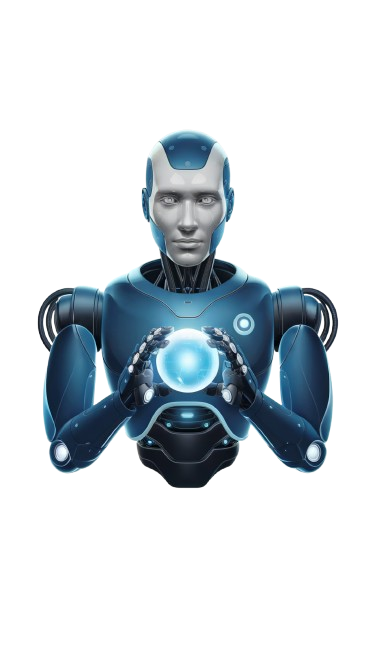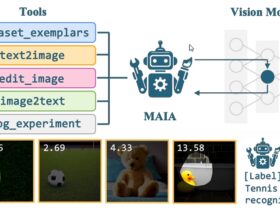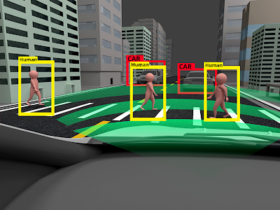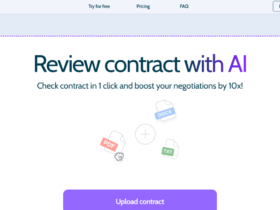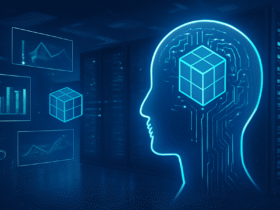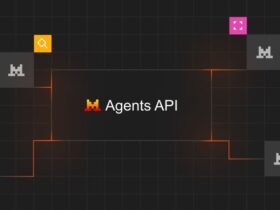The healthcare industry is on the brink of a big change thanks to AI generators, especially GPT-4 technology. These tools are set to change how healthcare works, making things more efficient and modern.
Studies show that healthcare could get better by $1 trillion if it used AI better. Generative AI could make this happen by automating tasks and updating old systems. It can make things like handling paperwork, improving medical images, and finding new drugs faster.
AI generators are changing how healthcare handles paperwork. For example, writing clinical notes can take a lot of time. But, AI can do this job fast and accurately, saving doctors’ time.
AI is also making health insurance better by making things like getting prior authorization faster. Normally, it takes ten days to do this. Using gen-AI, this process can be much quicker. This means better service for patients and more time for staff to deal with harder questions.
AI isn’t just for paperwork. It’s also helping with medical images and finding new drugs. AI can make medical pictures clearer and help find new targets for drugs. This makes finding and making new medicines faster.
Key Takeaways
- Generative AI (gen AI) has the potential to unlock $1 trillion in improvement potential for healthcare organizations through automation and modernization.
- AI generators can transform clinical note-taking, streamline insurance processes, and enhance medical imaging and drug discovery.
- Gen AI can reduce the time taken for prior authorization verification and claims processing, improving efficiency in the healthcare industry.
- AI-powered communication systems can handle routine inquiries and patient outreach, freeing up healthcare professionals to focus on more complex tasks.
- Generative AI models can generate high-quality medical images, facilitate training of AI algorithms, and support early detection and intervention in healthcare.
Generative AI: A Game-Changer in Healthcare
The healthcare industry is changing fast, thanks to generative AI. This new AI is set to change many parts of healthcare. It can automate tasks and improve medical images. A recent report found the market for this AI in healthcare was $1.07 billion in 2022. It’s expected to grow by 35.14% each year until 2032, reaching $21.74 billion.
Automating Administrative Tasks
Generative AI can make healthcare work better by automating tasks. This means doctors and nurses can focus more on patient care. But, it needs a strong digital base, investment in people, and ready data. It’s also important to change jobs and teach people to use AI well for better care.
Applications in Medical Imaging
Generative AI is very useful in medical imaging. It can make images clearer, reduce noise, and help with diagnoses. This AI can also support doctors in making decisions and help with personalized treatments.
As healthcare uses more generative AI, it’s clear this tech will change things a lot. It will help patients, make healthcare more efficient, and change how we think about healthcare. By using AI in healthcare, healthcare providers can lead in innovation and give the best care to patients.
AI in Healthcare: Revolutionizing Drug Discovery
The pharmaceutical industry is quickly adopting AI technology to change how we find new drugs. With medical knowledge growing fast, AI is key to handling the huge amount of data.
AI in healthcare speeds up finding and developing new drugs. It helps with tasks like finding new targets, making new compounds, and predicting how drugs will work together. Medical AI tools use big data and complex algorithms to find new insights and promising drugs faster than old methods.
Already, healthcare AI is making a big impact. In early 2020, Exscientia started clinical trials with an AI-designed drug. AlphaFold by DeepMind also made a big leap in predicting protein structures, covering over 200 million proteins, including all 20,000 human genome proteins.
As AI technology gets better, the pharmaceutical industry is set to gain a lot. With more investment and successful stories, the future of finding new drugs looks bright. This could lead to safer, more effective treatments that are cheaper and come faster.
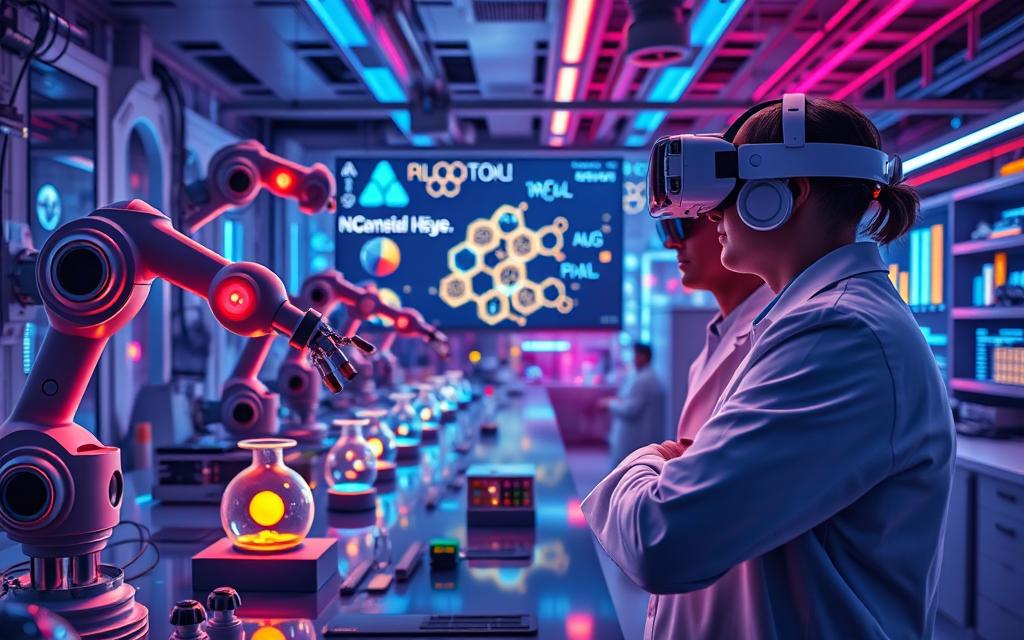
Unlocking Insights with AI in Medical Research
The healthcare world is changing fast thanks to AI technology. AI is now doing things like automating tasks and improving medical images. Now, healthcare AI is helping us see new things in medical research.
Generative AI models are a big help in making data processing faster and automating tasks. They can help doctors by organizing patient histories and finding important information. But, we need to be careful with AI in diagnosis, especially for rare diseases.
AI in healthcare does more than help with patient care. It can change how we manage health on a large scale. By using big health datasets, AI can spot patients at risk and create care plans just for them. This leads to better care, better health, and lower costs.
| Key AI Applications in Medical Research | Impact |
|---|---|
| Precision Medicine | Predicting treatment outcomes based on patient attributes and treatment context |
| Diagnostic Accuracy | Recognizing potentially cancerous lesions in radiology images and improving diagnosis |
| Natural Language Processing | Automating clinical documentation and research analysis |
| Robotic Process Automation | Streamlining structured digital tasks like prior authorizations and billing |
| Surgical Robotics | Enhancing precision and minimally invasive procedures in various surgical specialties |
The future of healthcare AI looks bright, with new discoveries on the horizon. With medical AI tools, doctors and researchers can move faster, care for patients better, and change medicine for the better.
Conclusion
AI technology is changing healthcare in big ways. It’s making medical care, drug discovery, and research better. By automating tasks and improving medical imaging, AI in healthcare has a lot to offer.
But, as healthcare AI grows, we must work together and be open. Medical AI tools need to be tested well and have doctors involved in their making. This makes sure AI gives good advice that helps patients.
By using AI in healthcare carefully and focusing on safety, we can make big advances in medicine. We can also make patients’ lives better and meet the world’s growing healthcare needs. As we go forward, using AI technology wisely will help change healthcare for the better.
FAQ
How can generative AI technology transform healthcare operations?
What is the projected growth of the generative AI market in healthcare?
FAQ
How can generative AI technology transform healthcare operations?
Generative AI, or gen AI, uses GPT-4 to change healthcare for the better. It automates tasks like writing clinical notes, processing claims, and checking benefits. This tech turns patient chats into detailed clinical notes in seconds, making old note-taking seem slow.
What is the projected growth of the generative AI market in healthcare?
The market for generative AI in healthcare was
FAQ
How can generative AI technology transform healthcare operations?
Generative AI, or gen AI, uses GPT-4 to change healthcare for the better. It automates tasks like writing clinical notes, processing claims, and checking benefits. This tech turns patient chats into detailed clinical notes in seconds, making old note-taking seem slow.
What is the projected growth of the generative AI market in healthcare?
The market for generative AI in healthcare was $1.07 billion in 2022. It’s expected to grow by 35.14% each year until 2032. By then, it will hit $21.74 billion.
How can generative AI be used in medical imaging?
Generative AI helps with making images clearer, adding data to them, and reducing noise. It also does super-resolution, makes images from scratch, and helps with diagnosing diseases. This tech makes medical images better, helps in making accurate diagnoses, and aids doctors in making decisions.
What are the potential applications of generative AI in drug discovery and development?
Generative AI is key in finding new drugs. It helps identify targets, create new compounds, and predict how drugs will work together. It speeds up finding the right medicine, finds new uses for drugs, and helps with clinical trials.
How can generative AI enhance the efficiency of medical research and data analysis?
Generative AI makes medical research faster by processing data and gathering information automatically. It helps doctors by looking through patient records and asking the right questions based on the patient’s history.
What are the key considerations for the responsible deployment of generative AI in healthcare?
It’s crucial to be open and work together between AI makers and doctors. This ensures AI gives good advice and checks it for mistakes. Generative AI should be used carefully, especially in places where it can make mistakes without big risks.
.07 billion in 2022. It’s expected to grow by 35.14% each year until 2032. By then, it will hit .74 billion.
How can generative AI be used in medical imaging?
Generative AI helps with making images clearer, adding data to them, and reducing noise. It also does super-resolution, makes images from scratch, and helps with diagnosing diseases. This tech makes medical images better, helps in making accurate diagnoses, and aids doctors in making decisions.
What are the potential applications of generative AI in drug discovery and development?
Generative AI is key in finding new drugs. It helps identify targets, create new compounds, and predict how drugs will work together. It speeds up finding the right medicine, finds new uses for drugs, and helps with clinical trials.
How can generative AI enhance the efficiency of medical research and data analysis?
Generative AI makes medical research faster by processing data and gathering information automatically. It helps doctors by looking through patient records and asking the right questions based on the patient’s history.
What are the key considerations for the responsible deployment of generative AI in healthcare?
It’s crucial to be open and work together between AI makers and doctors. This ensures AI gives good advice and checks it for mistakes. Generative AI should be used carefully, especially in places where it can make mistakes without big risks.

